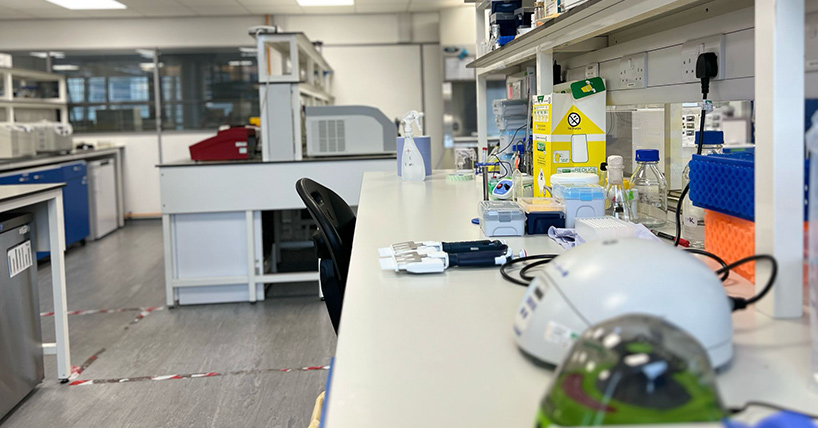Engineering Biology research
Engineering Biology research to address environmental challenges
Published on: 9 February 2024
A new £13m research centre, the first of its kind in the UK, is being formed to enhance and develop the natural abilities of micro-organisms in cleaning up our planet.
Tackling environmental pollutants and waste using microbes, the new centre is being established with £13 million of funding from UK Research and Innovation’s Technology Missions Fund and support from the Biotechnology and Biological Sciences Research Council.
The Environmental Biotechnology Innovation Centre (EBIC), led by Cranfield University, brings together scientists from ten leading UK institutions in a mission to advance the properties and functions of micro-organisms, creating more effective ways to monitor the environment and remove pollutants.
Cranfield is working with nine other universities on this project: Brunel University London, the University of Essex, Bangor University, the University of Edinburgh, the University of Southampton, the University of East Anglia, the University of Glasgow, Heriot-Watt University and Newcastle University.
Professors Natalio Krasnogor and Tom Curtis lead Newcastle University participation in the consortium, bringing their expertise in environmental microbiology, software engineering, artificial intelligence and microbial attribution.

Enormous potential of tiny ‘superhero’ micro-organisms
“They may be tiny, but micro-organisms have ‘superhero’ properties which give them enormous potential to have a positive impact on our world,” says Frederic Coulon, Professor of Environmental Chemistry and Microbiology at Cranfield University and EBIC Project Lead.
“Using advanced technologies, the research team will create entirely new organisms or enhance the functions of existing ones. By doing this, we can design micro-organisms that are better suited for environmental tasks like converting waste into valuable resources.”
Professor Natalio Krasnogor, Professor of Computer Science and Synthetic Biology, Newcastle University School of Computing, added: “This is a truly exciting opportunity for the UK’s wider Engineering Biology community as we seek to create a critical mass of interdisciplinary talent to develop synthetic biology solutions to important environmental problems. These problems affect not only the UK but the wider world too and require solutions that are trustworthy, scalable and practical, areas in which Newcastle is a global leader.”
Professor Tom Curtis said: “Newcastle University has been developing a vision for Engineering Biology for Environmental Protection since the early 2000s. Our unique and synergistic synthesis of computational science and the of the power of the microbial world will be crucial to the success of the consortium. With climate change upon us, time is our most important asset. Our work has the potential to make order of magnitude improvements in the rate of development of EB technologies”
Research from lab to field applications
Working together from lab to field applications, scientists involved in the five-year project will examine ways to develop micro-organisms to target and mitigate negative impacts from polluting substances like plastic waste, hydrocarbons, metals and oil. Micro-organisms will not only be used to clean up hazardous and toxic pollutants from the environment, but also to help regenerate or recycle waste while ensuring the traceability, provenance and integrity of engineered organisms to support public trust and transparency.
Cutting-edge techniques from synthetic biology, biotechnology, computational sciences and environmental engineering will be used. With a focus on responsible and ethical research practices, the research team is set to examine and develop new ways to tackle three key areas:
- Next-generation biosensing for environmental monitoring and surveillance
- Bioremediation targeting environmental pollutants, promoting cleaner and healthier ecosystems
- Enhanced wastewater and waste management to improve resource recovery, optimise treatment processes and reduce waste generation
Engineering biology is identified as one of the UK Government’s five critical technologies in its Science and Technology Framework.
Adapted with thanks from Cranfield University.



